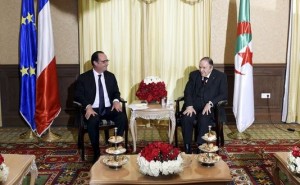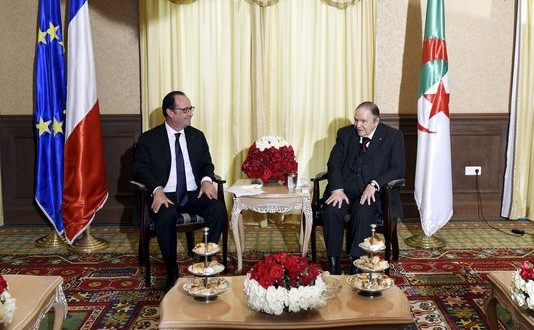Abdou Semmar, editor of Algerie Focus, discussed Islam in France and the latter’s difficulty taking responsibility and its need to be “better armed against extremist Salafism.”
Q: What do you think of Manuel Valls’s remarks on the “war of civilization”?
A: “I’m not surprised that a prime minister, no matter their political affiliation, holds this type of belief. France is not intellectually armed to fight extremist Salafism, which thrives in social areas that escape state control. France is divided in half. A wall separates it. There is the France that Manuel Valls knows, and the poor banlieues. In these areas, the dream of integration failed and a communitarian Islam, that of basements and stairwells , has developed. The youths declare themselves Muslims to annoy the white people that reject them. They practice Islam as a resistance method. Salafists work in these areas. In the absence of political support, Manuel Valls is forced to adopt a rightist discourse in order to leave no room for the National Front.
, has developed. The youths declare themselves Muslims to annoy the white people that reject them. They practice Islam as a resistance method. Salafists work in these areas. In the absence of political support, Manuel Valls is forced to adopt a rightist discourse in order to leave no room for the National Front.
Q: Do you feel there is an anti-Islam sentiment in France?
A: “Islam is seen as an enemy. We don’t see it as an element with which we can live in peace. Secularism has become a dogma. And secularism’s missteps have brought about significant unease. It pushes young people to feel discriminated against and to radicalize. We see, for example, the veil as a backward step for feminism. We refuse to see Muslims as an integral part of French society. There are around 5 million Muslims in France, that’s 8% of the population. For example, unlike in Germany, there are no public holidays for Muslims. For Aid, the French Muslim is obligated to take the day off or lie, while he pays his taxes just like everyone else. In my opinion, before anything can improve France needs to accept its cosmopolitanism. We have Versailles, beautiful neighborhoods on one side and Barbès on the other. It’s easier to get from Algiers to its suburbs than to get to the northern districts of Marseille. Once assumed, this cosmopolitanism must become a political tool. And finally, the development of a folkloric and outlandish Islam must be stopped, this communitarian Islam of the banlieues.”
Sources







